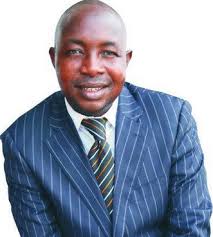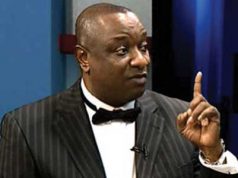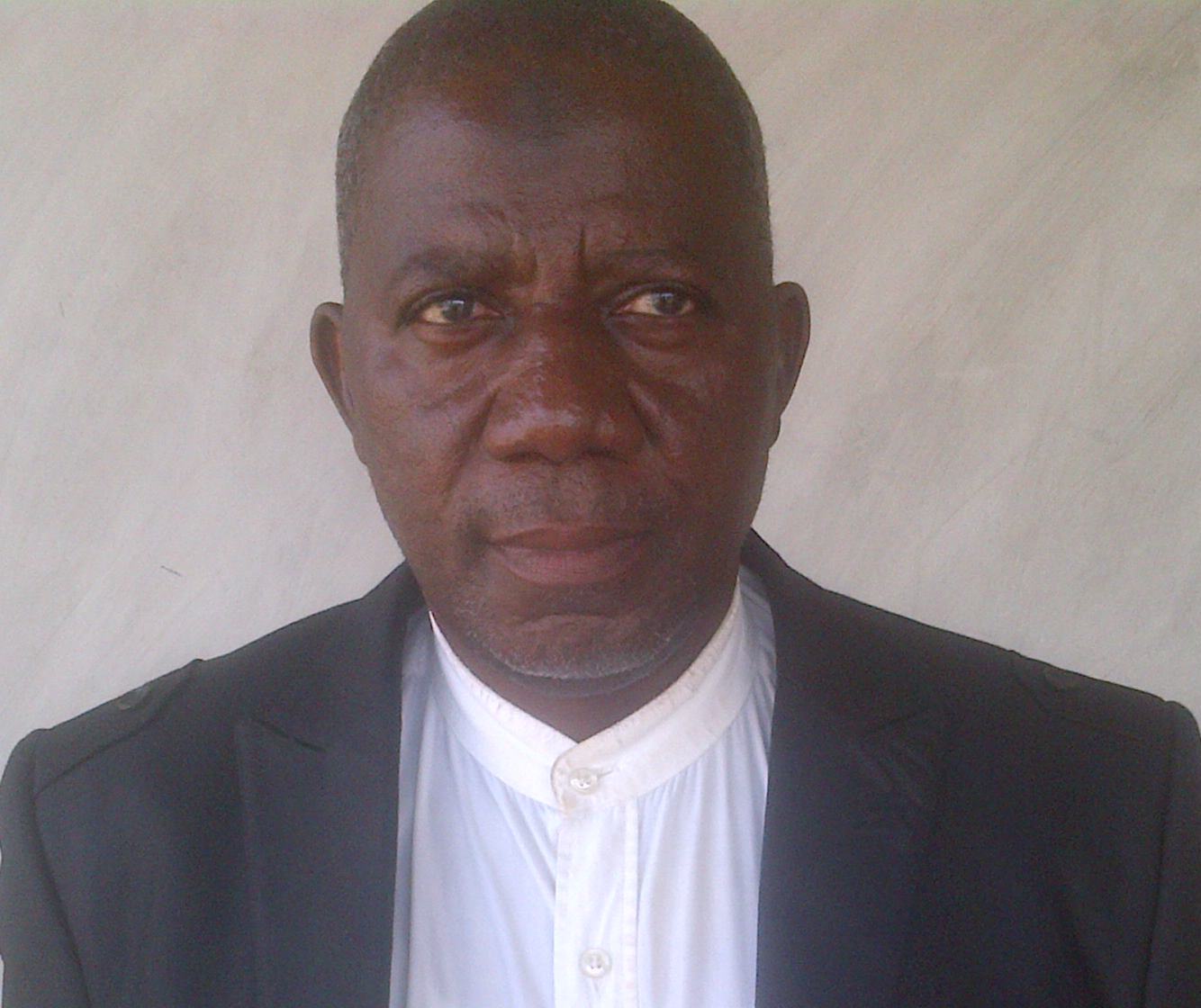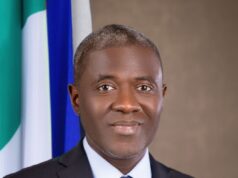
President Goodluck Jonathan has most recently been laureled by an emotive media enthusiast. Professor Femi Aribisala has garbed him with borrowed robes as the long awaited Messiah. Characters like Aribisala and other social predators-in-chief are unwilling to let Nigerians into the stinking vouch of president Jonathan arc. But there is a snag: however, had they tried and still trying to stamp the image of a performing president on the nation’s consciousness, the stench of stinking corruption; brazen impunity, jaded avarice and hopeless incompetence refused to dissipate.
The media as the vector of society, exercises majestic dominance over virtually all other claimants to Power – over the institutions, people, politicians, Judiciary, Legislature, and the Executive. This is why Nigerians must task those who serve at the Fourth Estate of the Realm with an ethical rigour, a measure that is paralleled perhaps only by what society expects of medical doctors who minister to a people’s physical and mental health, or religious ministers who are preoccupied with the requirements of the spirit. To act otherwise is to impugned the integrity of the media, ever hopeful of a change in the political order. That is, hopeful of the saner society, of principled political bargain and the ordination of a viable future. The collapse of that future becomes agonizingly real where falsehood supplants reality. It therefore renders flaccid the essence of the media as the mirror of society and conveyance of absolute truth.
This is one of the reasons President Jonathan has refused to chase down some of the dreams of the founding fathers. Perhaps, he knows no dreams of our founding fathers, and lacks one for the nation. The president as a scofflaw in a shambolic blitheness has moved on as though no promises or contractual obligations were entered with the people as a binding rule to govern them.
His campaign promise to Nigerians that he would provide 16,000 megawatts of electricity within two years in office in 2010 has not been fulfilled to date. He was so sure to the extent that he went as far as saying if he didn’t achieve this in his first term, he doesn’t see any reason why he should be seeking another term in office and there was no need for him to continue beyond 2015.
At the moment, not even a single wattage has been generated by his administration. In fact, power generation has dropped drastically from 4000 megawatt he inherited.
President Jonathan made another notable promise to the people of South-east, saying, ‘íf I don’t deliver the second Niger bridge at the end of my tenure, I will leave this country and go and live elsewhere because the failure cannot be defended.’
The president told a bewildered world on January 24, 2013 in an interview anchored by CNN’s Christine Amanpour in Davos, Switzerland where he attended the World Economic Summit that power generation and supply has never reached its peek since Nigeria becomes a nation than under his administration. He beat his chest that Nigerians are impressed with the current level of improvement in power, and that if there was one area “ordinary Nigerians” applauded his administration for, it was power.
In a feat of ululation, Mr. President told CNN correspondent in far way Davos that the nation’s power generation has improved tremendously when the megawatts is hovering between 3,000 and 4,000 megawatts! Even at that, can we call less than 5,000 megawatts of power generation an improvement in a county of nearly 200 million people while a less populated country like South Africa with a population of 40 million people are generating over 40,000 megawatts?
Nigerians would have been a little hysteric if the President’s only problem has been sluggishness or dullness. Day after day, president Jonathan reveals that he has firmly entangled himself in the inexplicable social web of graft and ultimately sustains his Administration on the cancerous vice of corruption. His branded 2015 presidential re-election has led the smiling president into many uncanny cesspits of sleaze.
Because of his possible retention of Aso Rock, he pardoned the son of a notorious torturer and butcher, the late Sanni Abacha’s son; therefore making a mockery of his anti-corruption campaigns. A whopping sum of N446.3 billion stolen Nigerian money is resting pretty well in Mohammed Sanni Abacaha’s account. To make matter worse, the late diminutive demented dictator’s son is the greatest financier of the Peoples Democratic Party (PDP) in Kano, and a possible governorship candidate in next year’s election!
What can we make of the presidential pardon granted his former boss, Dieprieye Alamieyeseigha who was sentenced in 2007 for corruption-related charges?
Boni Haruna is a minister in President Jonathan’s Administration and was among the 15 Governors who were facing corruption charges before Jonathan mounted the saddle. Also, for political expedience, the president has dropped the $6 billion (about N960 Billion) corruption charges against former works minister, Hassan Lawal for political reasons.
Two years ago, The Punch newspaper came up with a report that about five trillion naira government funds have been stolen, according to the Mallam Nuhu Ribadu-led Petroleum Task Force report; the Minister of Trade and Investment’s report on stolen crude; the House of Representatives fuel subsidy report and investigations into the ecological fund, SIM card registration and frequency band spectrum sale. The Ribadu report on the oil and gas sector put daily crude oil theft at a high 250,000 barrels daily at a cost of $6.3billion (N1.2trn) a year. This puts the total amount lost through oil theft in the two years of Jonathan’s government at over $12.6bn (N2trn). Oil theft is common in the Nigerian oil and gas sector. In June, a special naval team impounded a French ship, MT Vannessa, at Brass Loading Terminal, Bayelsa State, for allegedly stealing 500,000 barrels of crude oil per day from the country.
It was subsequently reported that the suspects, in their confessional statements, indicted some political office holders, many fuel marketers and some officials of the Nigerian National Petroleum Corporation and Department of Petroleum Resources. In October, Minister of Trade and Investment, Dr. Olusegun Aganga, in a letter to the President, said 24 million barrels of oil worth $1.6bn (N252bn) was stolen between July and September. According to Aganga, his signature was forged on the Export Clearance Permit that was used to export the crude oil from Nigeria. Confirming that oil theft was depleting Nigeria’s resources, the Minister of Finance, Dr. Ngozi Okonjo-Iweala, in May, said the government lost a fifth of its oil revenues to theft in April.
Apart from income lost through oil theft, the Ribadu report also said ministers of Petroleum Resources between 2008 and 2011 handed out seven discretionary oil licenses and that government lost $183m (N29bn) in signature bonuses via these deals. The Ribadu panel discovered that three of the oil licenses were awarded under the current petroleum minister, Mrs. Diezani Alison-Madueke, who took up her position in 2010. Alison-Madueke, however, denied knowledge of the discretionary awards.
Shortly before the Ribadu report, the House of Representatives had raised alarm that the N2.6trn the Federal Government paid for oil subsidy in 2011 could not be properly accounted for.
The House said: “Fuel subsidy payments amounted to N261.1bn in 2006, N278.8bn in 2007 and N346.7bn in 2008, but, even after the subsidy on diesel had been removed, the ‘subsidy’ payments jumped to N2.58trn in 2011 — more than 900 per cent of the sum appropriated for the year (N245bn).”
A subsequent report by the Presidential Committee on Verification and Reconciliation of Fuel Subsidy Payments, led by Mr. Aigboje Aig-Imoukhuede, revealed that in 2011, 197 subsidy transactions worth N232bn were illegitimate. These frauds are not limited to the oil industry, as similar probes have shown that almost all sectors are involved. In July that same year, the House of Representatives’ Committee on Environment discovered a tree seedling fraud worth N2bn awarded by the Ecological Fund office.
Chairman of the committee on environment, Mrs. Uche Ekwunife, said this during an investigative hearing on the mismanagement of ecological funds for the development of tree nurseries and seedlings in the 36 states. According to her, out of the N3bn approved by the Presidency in 2010, N2bn was released to the contractors and consultants without government getting value.
The former Minister of Environment, Hadiza Mailafia, however, said the contract was awarded by her predecessor. In the telecommunications sector, the House instituted a probe into the sale of the frequency brand spectrum, which was reportedly sold for less than its value. The 450MHz frequency, which was valued at over $50m, was allegedly sold for less than $6m (a difference of $44m or N6.9bn) by the Nigeria Communications Commission. In the same sector, the Reps, earlier that year, commenced investigations into the N6.1bn SIM card registration project embarked upon by the NCC in 2011.
Nothing, since then has been heard from the “Panel led-Administration” of President Goodluck Jonathan.
Even worst cases of blatant corruption have since taken foothold, including $1.1 billion OPL 245 Malabu bribe. These cases have escaped the consciousness of Professor Femi Aribisala and his ilks; an evidence that some media practitioners are at their crudest, a classic case of the contest between good and evil.
The caliber of Aribisala should be taunting presidential hopeful that should be driven by a passion for providing stellar leadership to a country that has been done in by Lucre-obsessed mediocrities.
From his bully pulpit, the president can take aim at the corruptible bullies; knowing fully well that there cannot be development without accountability. There is still a chance for the president to address the chronic neglect of the peoples’ needs, tackle corruption and fulfill new promises if he applies himself justly to his oath of office, and keep them. If more African nations (not just Ghana) are meeting the millennium development goals, Nigeria can’t be exempted.
Sustainable, measurable, accountable, responsive and transparent leadership is what we need now, and not some misbegotten opportunists.
Erasmus, a public affairs analyst wrote in from Lagos, Nigeria.
Tell: 234 80562 25515.
[myad]






